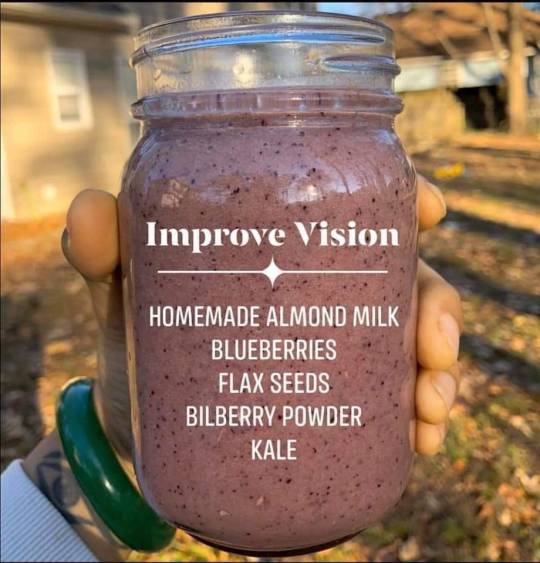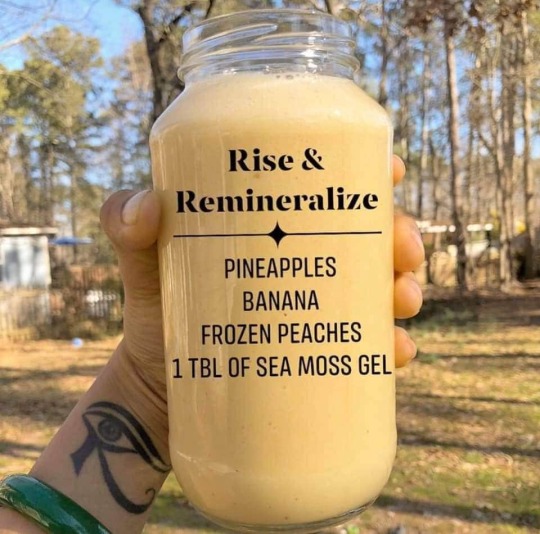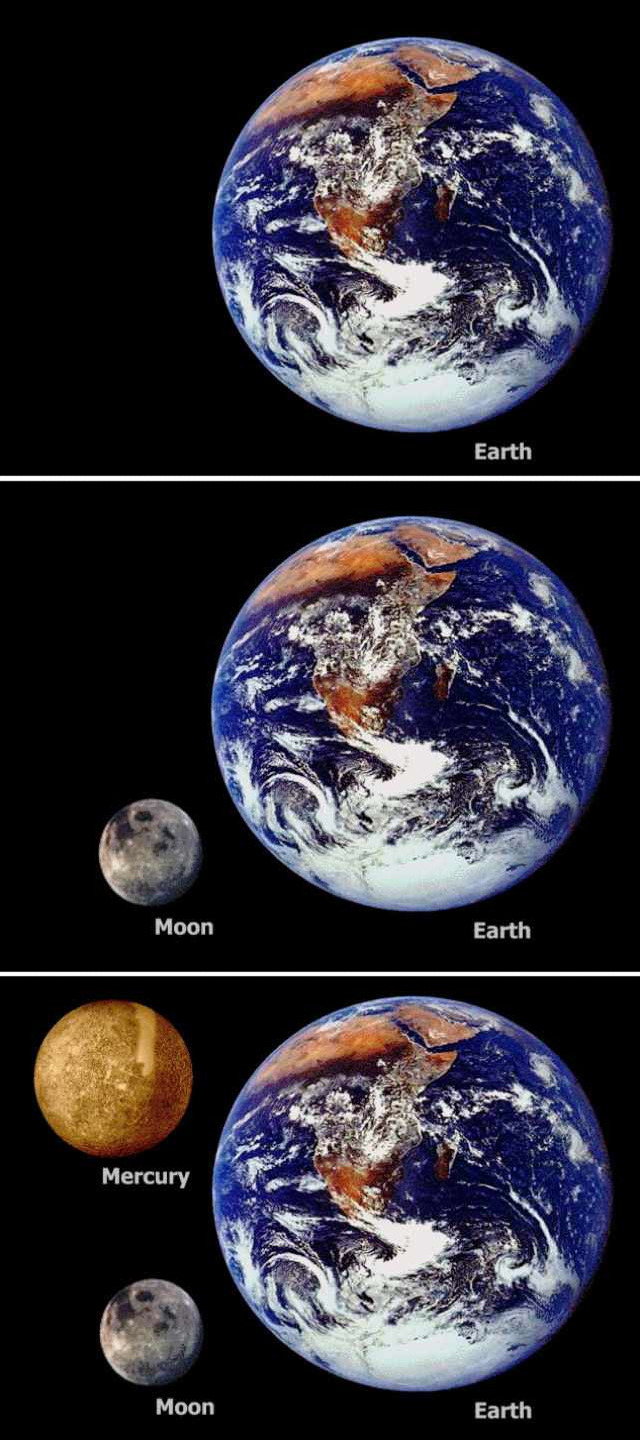Don't wanna be here? Send us removal request.
Text
229 notes
·
View notes
Text
361 notes
·
View notes
Photo

Join over 59.000 other followers, they can’t be wrong ;-)
follow my tumblr page: dogmeout
submit here: Submit
4K notes
·
View notes
Text
🌿fruit & medicinal properties🌿
🍒 cherries: -help calm nervous system -cancer preventing compounds -reduces inflammation -reduces risk for gout -supports healthy sleep -arthritis pain relief -reduces belly fat -reduces muscle pain -lowers risk of stroke
🍑 peaches: -helps maintain healthy skin & vision -helps maintain healthy bones & teeth -anti aging properties -improves digestion -calcium -potassium -packed with vital nutrients -good source of fiber
🍉 watermelon: -cardiovascular health -maintains bones -significant source of vitamins -combats free radicals -reduces body fat -anti inflammitory -diuretic & kidney support -alkaline forming -improves sight
🍓 strawberries: -potentially fight against cancer -anti aging properties -prevent heart disease, reduces risk of stroke -helps relieve constipation -can help with allergies & asthma -anti depression properties -reduces blood pressure -regulates blood sugar -folic acid
🍍 pineapple: -helps fight arthritis -immune system support -bone health -vision health -can reduce risk of macular degeneration (eye disease) -anti inflammitory -aids in digestion -packed with vital nutrients
🍃 kiwi: -increases bone mass -more vitamin c than an orange -packed with vital nutrients -aids in digestion -helps manage blood pressure -protects DNA from damage -supports weight loss -detox -prevents heart disease -protects against macular degeneration
🍇 grapes: -relax blood vessels -prevents/slows many types of cancer -maintains heart health -packed with nutrients -aids in digestion -weight loss -can prevent alzheimers -improves brain function -protects body from radiation
🍎 apples: -build immune system -fiber -reduces risk of cancer -prevents heart disease -healthy teeth -prevent alzheimers -prevents larkinsons -decreases risk of diabetes -reduces cholesterol -prevents gallstones -reduces risk of hypertension
🍊 oranges: -help maintain skin & vision -excellent source of vitamin B & C -fiber -prevents stroke -lowers blood pressure
🍌 banana: -potassium -energy booster -aids in digestion -fiber -weight loss -lowers blood pressure -prevents asthma -fights cancer -treats diarrhea -preserving memory
🌳 blueberries: -protect heart -lowers cholesterol -packed with antioxidants -reduce DNA damage -maintains healthy cholesterol -lower blood pressure -improve brain function & memory
🍃 mango: -protects against several forms of cancer -lowers cholesterol -clears skin -improves eye health -alkalizes entire body -promotes healthy sex -improves digestion -helps fight heat stroke
🍋 lemon: -contain high amounts of potassium -lowers risk of stroke -fights cancer -maintains healthy complexion -prevents asthma -increases iron absorption -boosts immune system
🍐 pear: -packed with nutrients -great source of fiber -treats diverticulosis (inflammation of the lining in large intestine) -weight loss -lowers blood pressure -lowers cholesterol -prevents diabetes -promotes digestion -detox
🍅 tomato: -prevents cancer -manages blood pressure -protects heart -maintains healthy complexion -reduces depression -improves vision -improves digestive system
🍃 grapefruit: -weight loss -prevents stroke -maintains blood pressure & heart health -prevents cancer -promotes digestion -hydration -maintaining healthy skin -prevents asthma
🌿if youre taking medication, please speak with your pharmacist or doctor before trying ANY natural remedies. grapefruit, for example, can really hurt you if youre taking anti depression medication. please be cautious.🌿 **this post is speaking specifically of the fruit, not of the plant itself
48K notes
·
View notes
Text
Dr. Tommy J. Curry,
the Mathematics of Hypermasculinity ……
Feminist movement was part of White Supremacy and always has been….
652 notes
·
View notes
Photo



Never been a beef between Africans and African American it was a plan to divide us.
I have notice, whenever you speak or act proudly about being African. Everyone who is non African becomes an expert. Your not a real African, “they don’t like African Americans or African American hate you etc.
You never been to Africa, you don’t look like them!!!!
They feel comfortable when your Christian, because they feel they can control you and tame you, and in the end fight for their cause.
They feel comfortable when you wear their names and feel proud to wear their names. Makes them feel like their ancestors may have been rough with us, but did a good job that was needed.
Notice their are no African languages in most public schools
Notice how African religions are demonized!!!
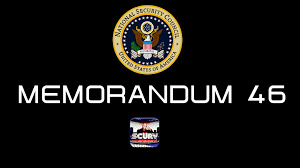
This Document is Exhibit 10 of U.S. Supreme Court Case No.00-9587
NATIONAL SECURITY COUNCIL MEMORANDUM-46 MARCH 17, 1978
Presidential Review Memorandum NSCM/46 TO: The Secretary of State The Secretary of Defense The Director of Central Intelligence SUBJECT: Black Africa and the U.S. Black Movement
The President has directed that a comprehensive review be made of current developments in Black Africa from the point of view of their possible impacts on the black movement in the United States. The review should consider:
1. Long-term tendencies of social and political developments and the degree to which they are consistent with or contradict the U.S. interests. 2. Proposals for durable contacts between radical African leaders and leftist leaders of the U.S. black community. 3. Appropriate steps to be taken inside and outside the country in order to inhibit any pressure by radical African leaders and organizations on the U.S. black community for the latter to exert influence on the policy of the Administration toward Africa.
The President has directed that the NSC Interdepartmental Group for Africa perform this review. The review should be forwarded to the NSC Political Analysis Committee by April 20.
(signed)
Zbigniew Brezinski cc: The Secretary of the Treasury The Secretary of Commerce The Attorney General The Chairman Joint Chiefs of Staff
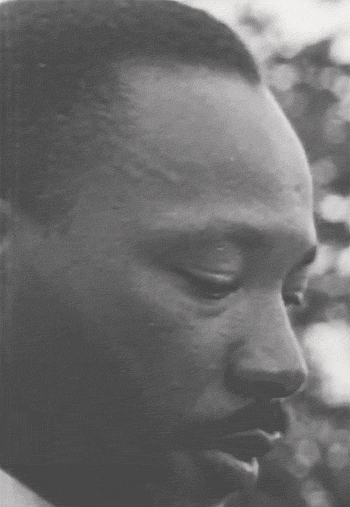
Objective of our policy toward Black Africa is to prevent social upheavals which could radically change the political situation throughout the area. The success or failure of our policy in the region depends on the solution international and internal issues whose importance of the United States is on the increase.
II. A. U.S. INTERESTS IN BLACK AFRICA
A multiplicity of interests influences the U.S. attitude toward black Africa. The most important of these interests can be summarized as follows:
1. POLITICAL
If black African states assume attitudes hostile to the U.S. national interest, our policy toward the white regimes; which is a key element in our relations with the black states, may be subjected by the latter to great pressure for fundamental change. Thus the West may face a real danger of being deprived of access to the enormous raw material resources of southern Africa which are vital for our defense needs as well as losing control over the Cape sea routes by which approximately 65% of Middle Eastern oil is supplied to Western Europe. Moreover, such a development may bring about internal political difficulties by intensifying the activity of the black movement in the United States itself. It should also be borne in mind that black Africa is an integral part of a continent where tribal and regional discord, economic backwardness, inadequate infrastructures, drought, and famine, are constant features of the scene. In conjunction with the artificial borders imposed by the former colonial powers, guerilla warfare in Rhodesia and widespread indignation against apartheid in South Africa, the above factors provide the communist states with ample opportunities for furthering their aims. This must necessarily redound to the detriment of U.S. political interests.
2. ECONOMIC
Black Africa is increasingly becoming an outlet for U.S. exports and investment. The mineral resources of the area continue to be of great value for the normal functioning of industry in the United States and allied countries. In 1977, U.S. direct investment in black Africa totaled about $1.8 billion and exports $2.2 billion. New prospect of substantial profits would continue to develop in the countries concerned.

IV. BLACK AFRICA AND THE U.S. BLACK MOVEMENT
Apart from the above-mentioned factors adverse to U.S. strategic interests, the nationalist liberation movement in black Africa can act as a catalyst with far reaching effects on the American black community by stimulating its organizational consolidation and by inducing radical actions. Such a result would be likely as Zaire went the way of Angola and Mozambique. An occurrence of the events of 1967-68 would do grievous harm to U.S. prestige, especially in view of the concern of the present Administration with human rights issues. Moreover, the Administration would have to take specific steps to stabilize the situation. Such steps might be misunderstood both inside and outside the United States.
In order to prevent such a trend and protect U.S. national security interests, it would appear essential to elaborate and carry out effective countermeasures.
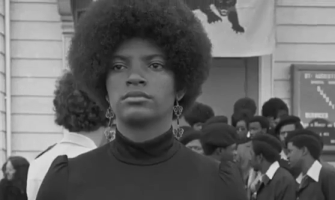
1. Possibility of Joint Action By U.S. Black and African Nationalist Movement.
In elaborating U.S. policy toward black Africa, due weight must be given to the fact that there are 25 millions American blacks whose roots are African and who consciously or subconsciously sympathies with African nationalism. The living conditions of the black population should also be taken into account. Immense advances in the field are accompanied by a long-lasting high rate of unemployment, especially among the youth and by poverty and dissatisfaction with government social welfare standards. These factors taken together may provide a basis for joint actions of a concrete nature by the African nationalist movement and the U.S. black community. Basically, actions would take the form of demonstrations and public protests, but the likelihood of violence cannot be excluded. There would also be attempts to coordinate their political activity both locally and in international organizations.
Inside the United States these actions could include protest demonstrations against our policy toward South Africa accompanied by demand for boycotting corporations and banks which maintain links with that country; attempts to establish a permanent black lobby in Congress including activist leftist radical groups and black legislators; the reemergence of Pan-African ideals; resumption of protest marches recalling the days of Martin Luther King; renewal of the extremist idea national idea of establishing an “African Republic” on American soil. Finally, leftist radical elements of the black community could resume extremist actions in the style of the defunct Black Panther Party.
Internationally, damage could be done to the United States by coordinated activity of African states designed to condemn U.S. policy toward South Africa, and initiate discussions on the U.S. racial issue at the United Nations where the African representation constitutes a powerful bloc with about one third of all the votes.
A menace to U.S. economic interests, though not a critical one, could be posed by a boycott by Black African states against American companies which maintain contact with South Africa and Rhodesia. If the idea of economic assistance to black Americans shared by some African regimes could be realized by their placing orders in the United States mainly with companies owned by blacks, they could gain a limited influence on the U.S. black community.
In the above context, we must envisage the possibility, however remote, that black Americans interested in African affairs may refocus their attention on the Arab-Israeli conflict. Taking into account; the African descent of American blacks it is reasonable to anticipate that their sympathies would lie with the Arabs who are closer to them in spirit and in some case related to them by blood. Black involvement in lobbying to support the Arabs may lead to serious dissention between American black and Jews. The likelihood of extremist actions by either side is negligible, but the discord may bring about tension in the internal political climate of the United States.
3. Political options
In the context of long-term strategy, the United States can not afford a radical change in the fundamentals of its African policy, which is designed for maximum protection of national security. In the present case, emphasis is laid on the importance of Black Africa for U.S. political, economic and military interests.
RECOMMENDATIONS
In weighing the range of U.S. interests in Black Africa, basic recommendations arranged without intent to imply priority are:
1. Specific steps should be taken with the help of appropriate government agencies to inhibit coordinated activity of the Black Movement in the United States.
2. Special clandestine operations should be launched by the CIA to generate mistrust and hostility in American and world opinion against joint activity of the two forces, and to cause division among Black African radical national groups and their leaders.
3. U.S. embassies to Black African countries specially interested in southern Africa must be highly circumspect in view of the activity of certain political circles and influential individuals opposing the objectives and methods of U.S. policy toward South Africa. It must be kept in mind that the failure of U.S. strategy in South Africa would adversely affect American standing throughout the world. In addition, this would mean a significant diminution of U.S. influence in Africa and the emergence of new difficulties in our internal situation due to worsening economic prospects.
4. The FBI should mount surveillance operations against Black African representatives and collect sensitive information on those, especially at the U.N., who oppose U.S. policy toward South Africa. The information should include facts on their links with the leaders of the Black movement in the United States, thus making possible at least partial neutralization of the adverse effects of their activity.
V. TRENDS IN THE AMERICAN BLACK MOVEMENT
In connection with our African policy, it is highly important to evaluate correctly the present state of the Black movement in the Untied States and basing ourselves on all available information, to try to devise a course for its future development. Such an approach is strongly suggested by our perception of the fact that American Blacks form a single ethnic group potentially capable of causing extreme instability in our strategy toward South Africa. This may lead to critical differences between the United States and Black Africa in particular. It would also encourage the Soviet Union to step up its interference in the region. Finally, it would pose a serious threat to the delicate structure of race relations within the United States. All the above considerations give rise to concern for the future security of the United States.
Since the mid-1960s, when legislation on the human rights was passed and Martin Luther King murdered, federal and local measures to improve black welfare have been taken, as a result of which the U.S. black movement has undergone considerable changes.
The principle changes are as follows:
*Social and economic issues have supplanted political aims as the main preoccupations of the movement. and actions formerly planned on a nationwide scale are now being organized locally.
*Fragmentation and a lack of organizational unity within the movement.
*Sharp social stratification of the Black population and lack of policy options which could reunite them.
*Want of a national leader of standing comparable to Martin Luther King.
B. THE RANGE OF POLICY OPTIONS
The concern for the future security of the United States makes necessary the range of policy options. Arranged without intent imply priority they are:
(a) to enlarge programs, within the framework of the present budget, for the improvement of the social and economic welfare of American Blacks in order to ensure continuing development of present trends in the Black movement;
(b) to elaborate and bring into effect a special program designed to perpetuate division in the Black movement and neutralize the most active groups of leftist radical organizations representing different social strata of the Black community: to encourage division in Black circles;
© to preserve the present climate which inhibits the emergence from within the Black leadership of a person capable of exerting nationwide appeal;
(d) to work out and realize preventive operations in order to impede durable ties between U.S Black organizations and radical groups in African states;
(e) to support actions designed to sharpen social stratification in the Black community which would lead to the widening and perpetuation of the gap between successful educated Blacks and the poor, giving rise to growing antagonism between different Black groups and a weakening of the movement as a whole.
(f) to facilitate the greatest possible expansion of Black business by granting government contracts and loans with favorable terms to Black businessmen;
(g) to take every possible means through the AFL-CIO leaders to counteract the increasing influence of Black labor organizations which function in all major unions and in particular, the National Coalition of Black Trade Union and its leadership including the creation of real preference for adverse and hostile reaction among White trade unionists to demands for improvement of social and economic welfare of the Blacks;
(h) to support the nomination at federal and local levels of loyal Black public figures to elective offices, to government agencies and the Court.
This would promote the achievement of a twofold purpose: first, it would be easier to control the activity of loyal black representatives within existing institution; second, the idea of an independent black political party now under discussion within black leadership circles would soon lose all support.
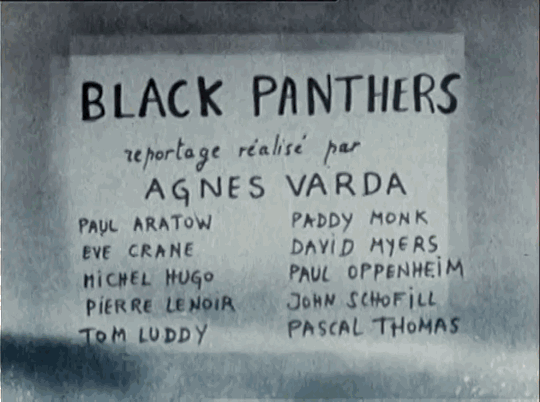
One more thing. I was on a program in Illinois recently with Senator Paul Douglas, a so-called liberal, so-called democrat, so-called white man, at which time he told me that our African Brothers were not interested in us in Africa. He said, the Africans are not interested in the American Negro. I knew he was lying, but, during the next two or three weeks, it is my intention and plan to make a tour of our African homeland, and I hope that when I come back, I’ll be able to come back and let you know how our African brothers and sisters feel towards us. And I know before I go there, that they love us. We’re one, we’re the same. The same man who has colonized them all these years colonized you and me too all these years, and all we have to do now is wake up and work in unity and harmony and the battle will be over -Malcolm X
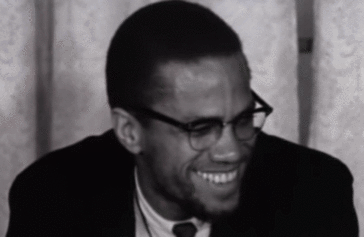
And the reason this tendency exists, the strategy of the white man has always been divide and conquer. He keeps us divided in order to conquer us. He tells you, I’m for separation and you for integration, and keep us fighting with each other. No, I’m not for separation and you’re not for integration, what you and I are for is freedom. Only, you think that integration will get you freedom; I think that separation will get me freedom. We both got the same objective, we just got different ways of getting’ at it.-Malcolm X
2K notes
·
View notes








